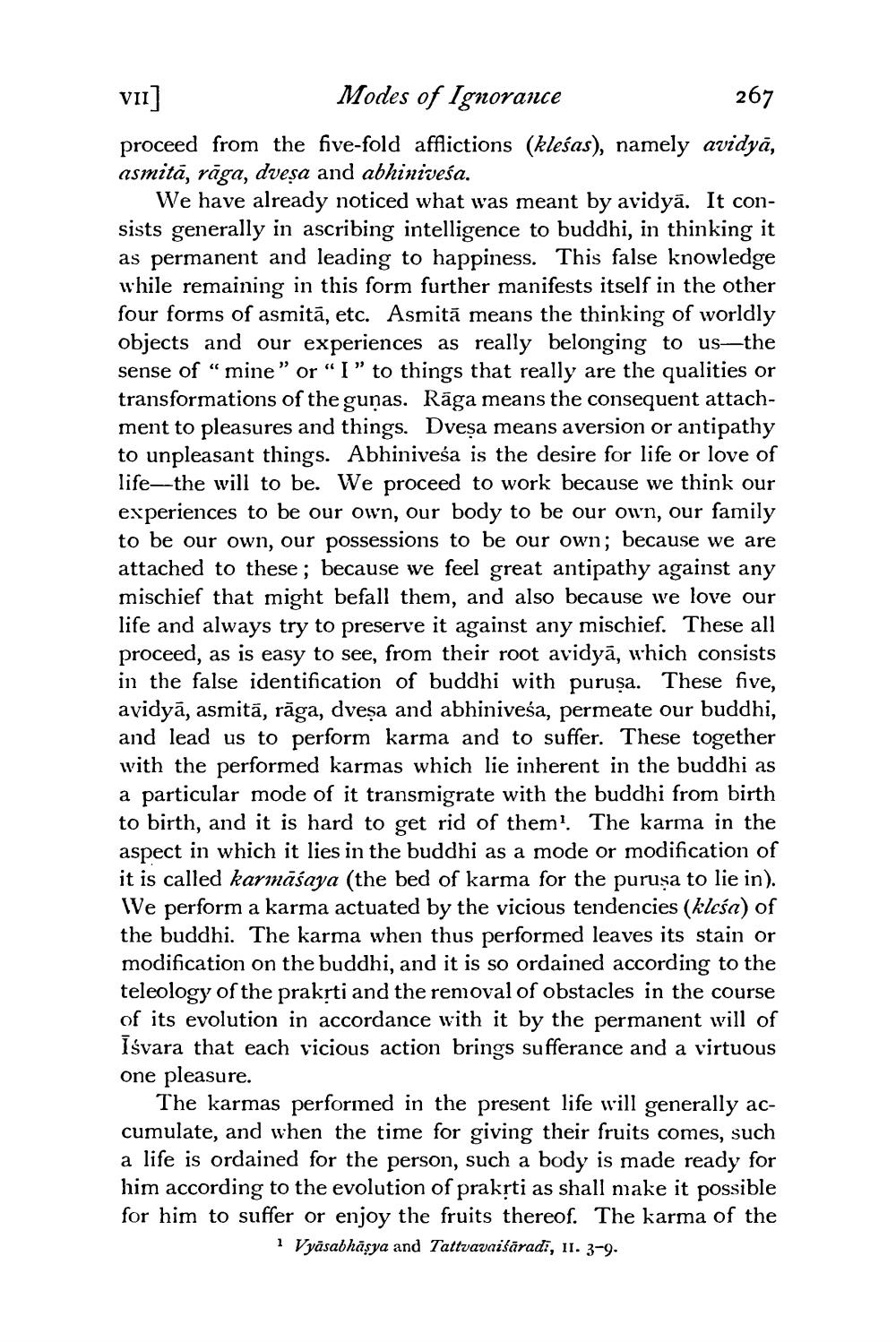________________
VII] Modes of Ignorance
267 proceed from the five-fold afflictions (kleśas), namely avidyā, asmitā, rāga, dveșa and abhiniveśa.
We have already noticed what was meant by avidyā. It consists generally in ascribing intelligence to buddhi, in thinking it as permanent and leading to happiness. This false knowledge while remaining in this form further manifests itself in the other four forms of asmitā, etc. Asmitā means the thinking of worldly objects and our experiences as really belonging to us—the sense of “mine” or “I” to things that really are the qualities or transformations of the gunas. Rāga means the consequent attachment to pleasures and things. Dveşa means aversion or antipathy to unpleasant things. Abhiniveśa is the desire for life or love of life—the will to be. We proceed to work because we think our experiences to be our own, our body to be our own, our family to be our own, our possessions to be our own; because we are attached to these; because we feel great antipathy against any mischief that might befall them, and also because we love our life and always try to preserve it against any mischief. These all proceed, as is easy to see, from their root avidyā, which consists in the false identification of buddhi with puruṣa. These five, avidyā, asmitā, rāga, dveșa and abhiniveśa, permeate our buddhi, and lead us to perform karma and to suffer. These together with the performed karmas which lie inherent in the buddhi as a particular mode of it transmigrate with the buddhi from birth to birth, and it is hard to get rid of them! The karma in the aspect in which it lies in the buddhi as a mode or modification of it is called karmāśaya (the bed of karma for the purusa to lie in). We perform a karma actuated by the vicious tendencies (klesa) of the buddhi. The karma when thus performed leaves its stain or modification on the buddhi, and it is so ordained according to the teleology of the prakrti and the removal of obstacles in the course of its evolution in accordance with it by the permanent will of Isvara that each vicious action brings sufferance and a virtuous one pleasure.
The karmas performed in the present life will generally accumulate, and when the time for giving their fruits comes, such a life is ordained for the person, such a body is made ready for him according to the evolution of praksti as shall make it possible for him to suffer or enjoy the fruits thereof. The karma of the
1 Vyāsabhāsya and Tattvavaitāradi, 11. 3-9.




